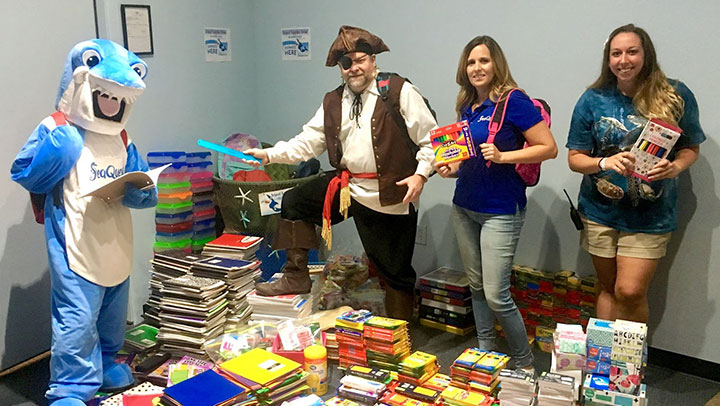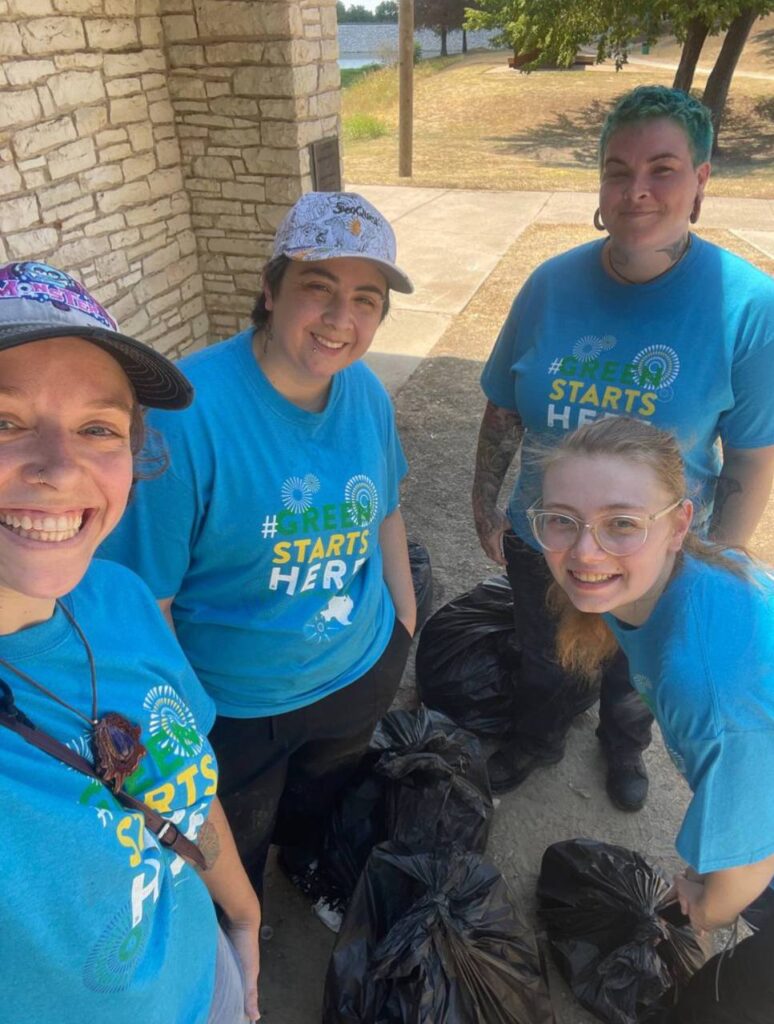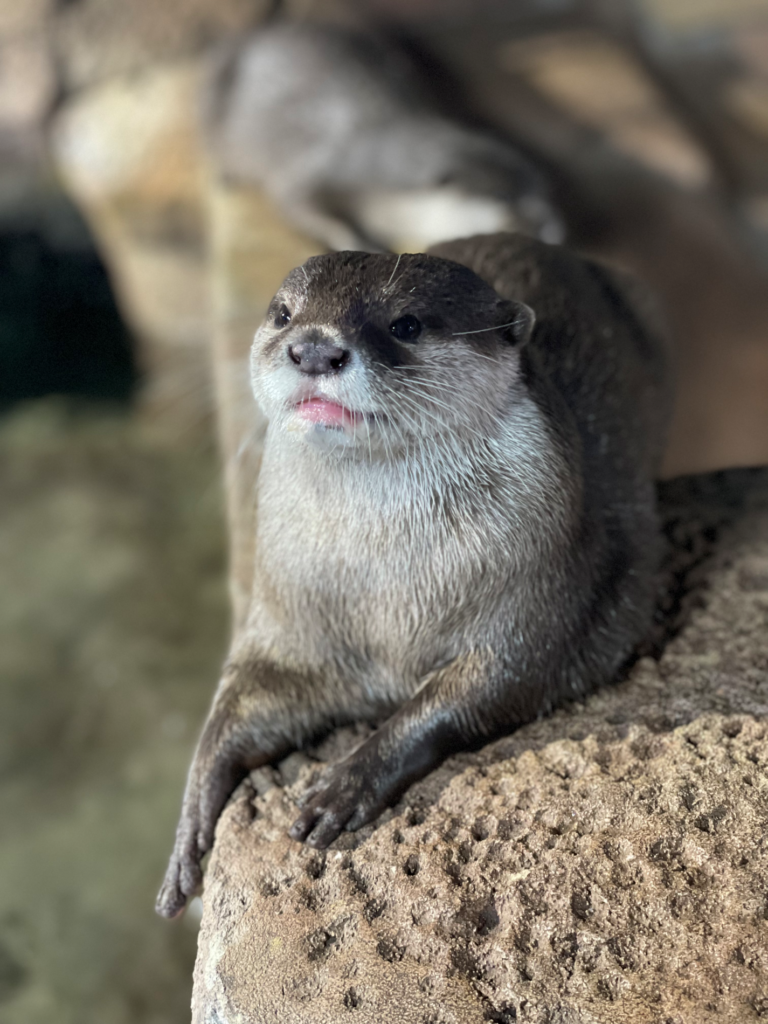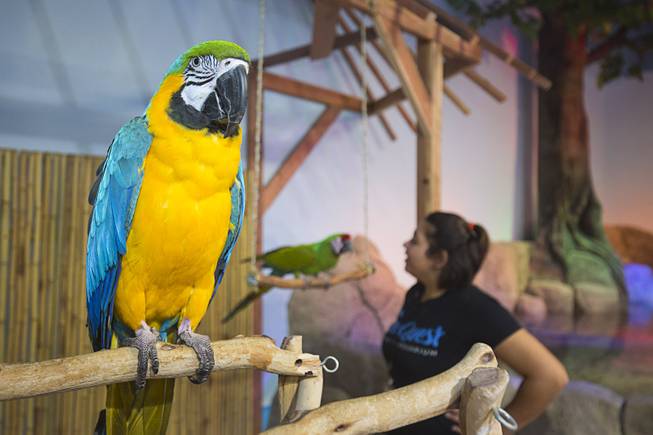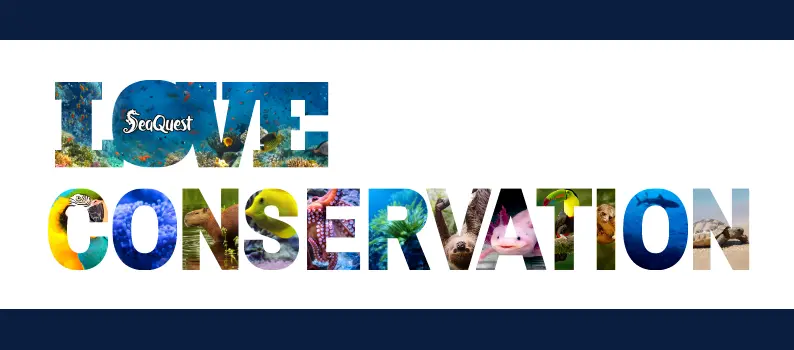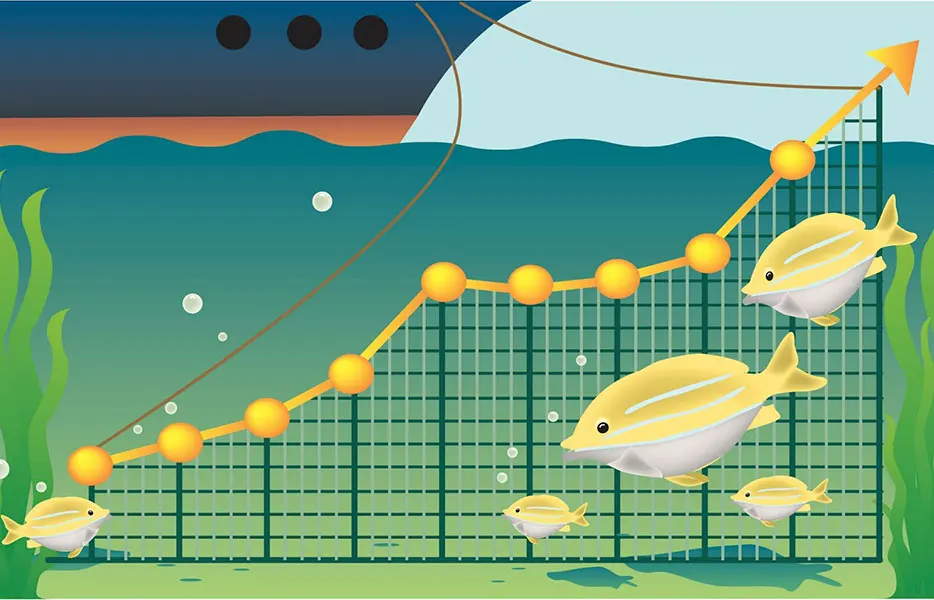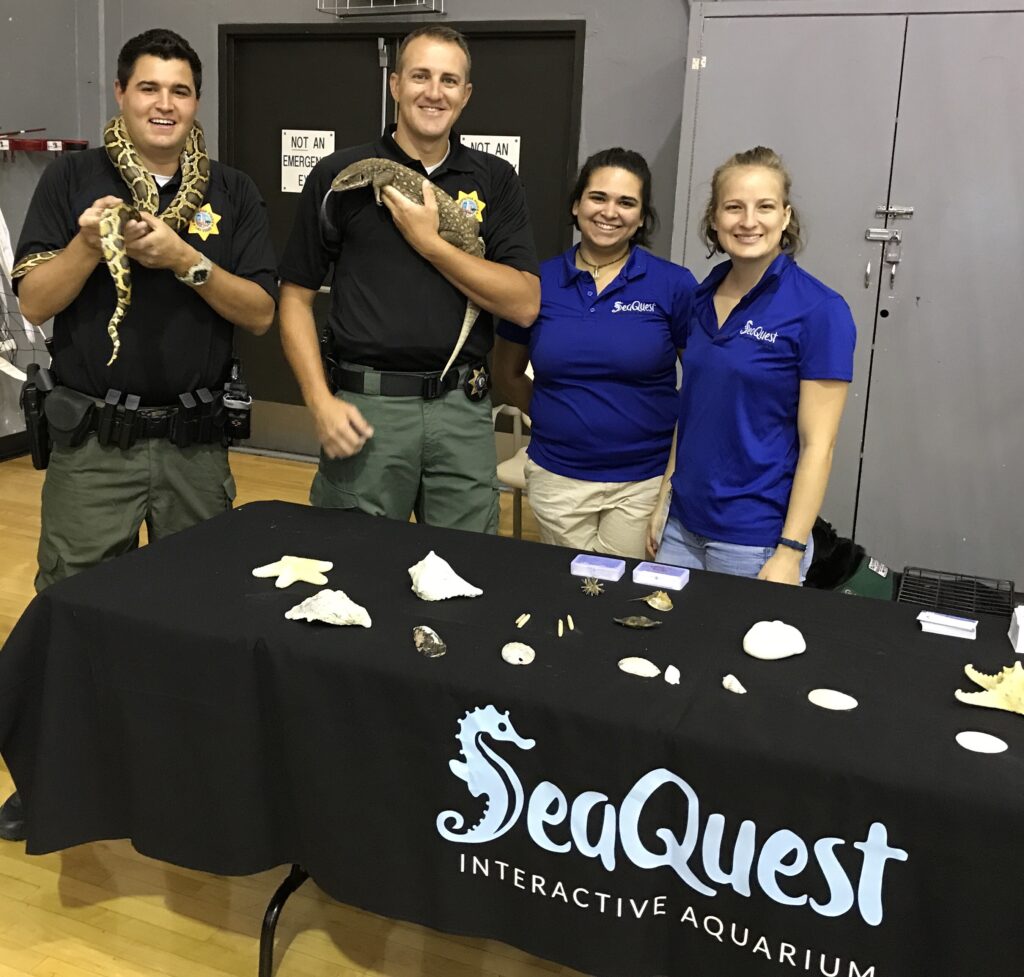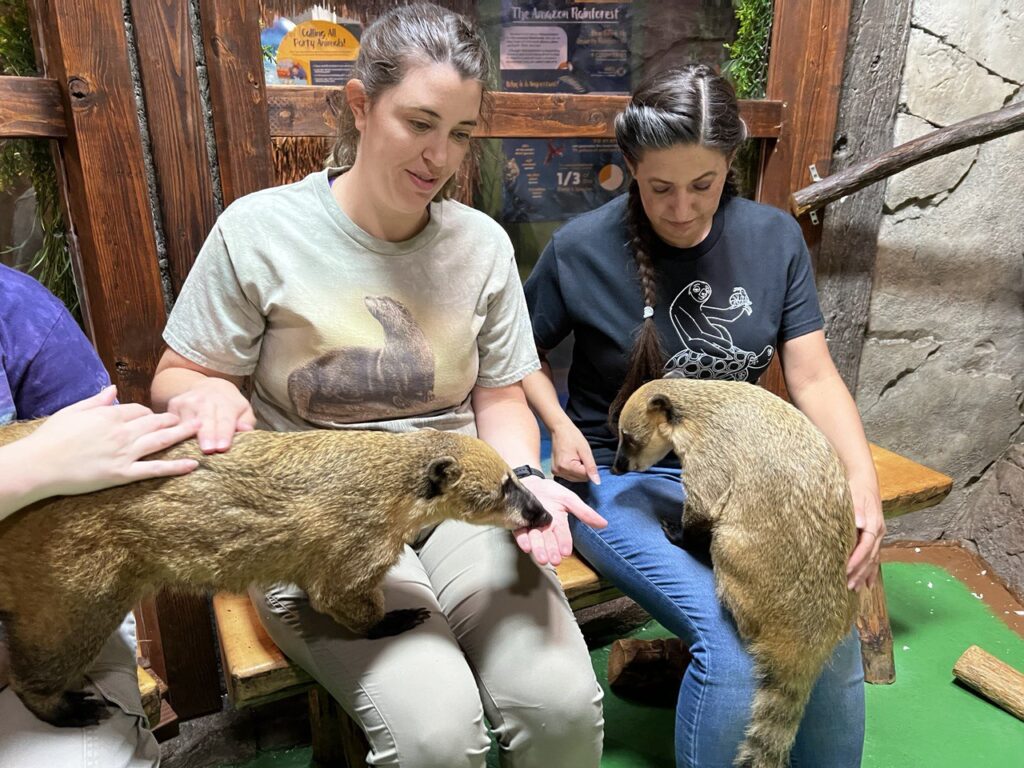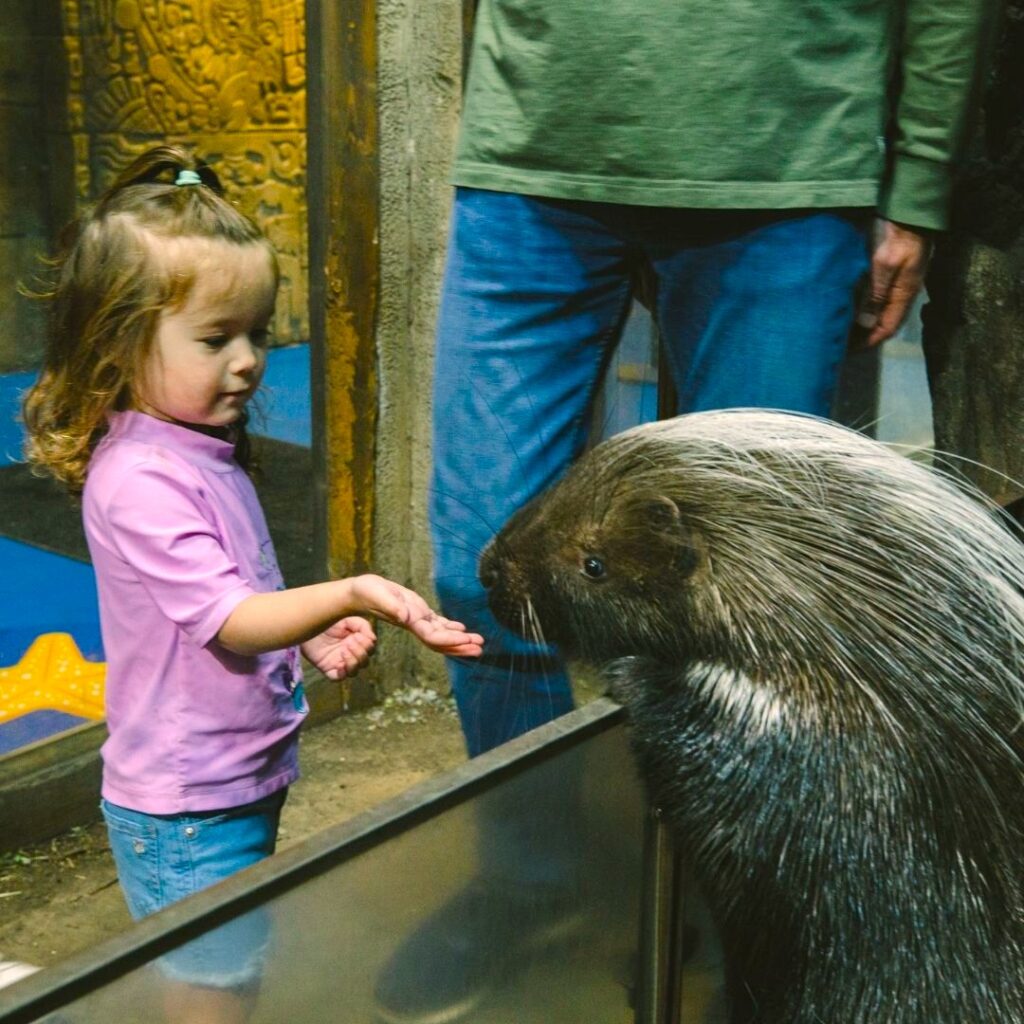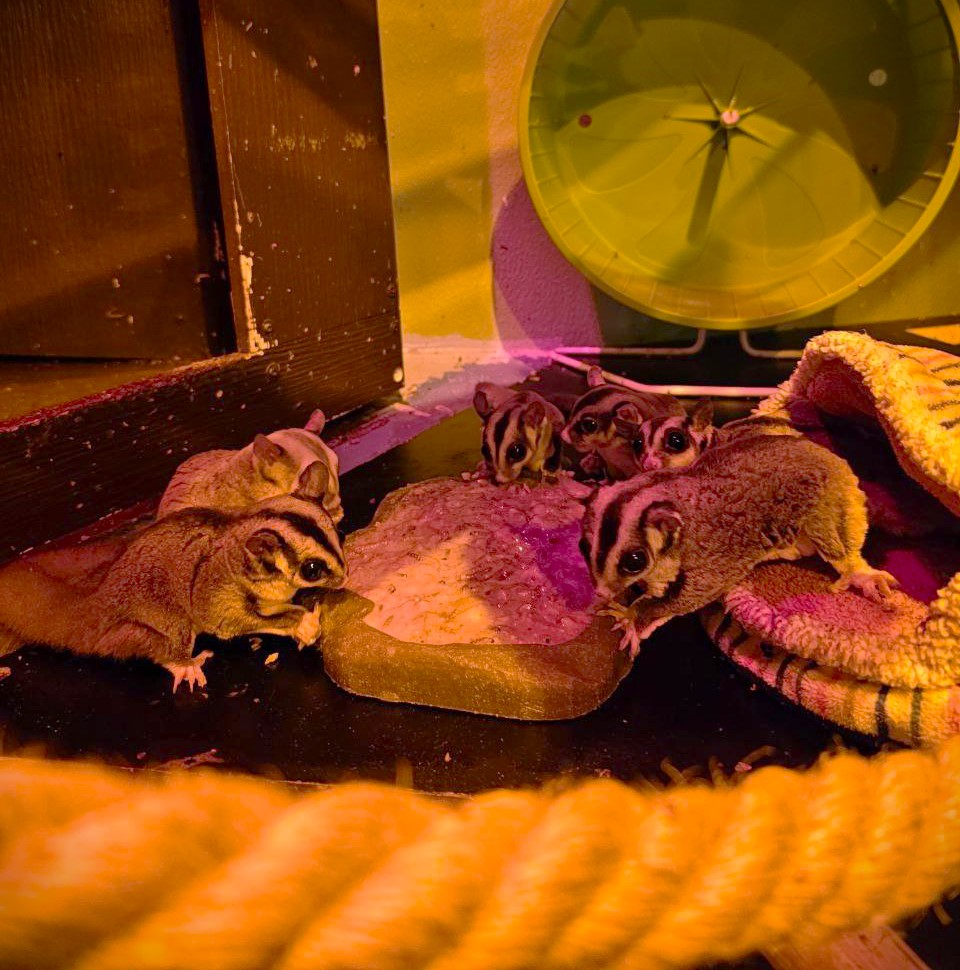SeaQuest’s Commitment to Conservation and Animal Rescue
Share it on:
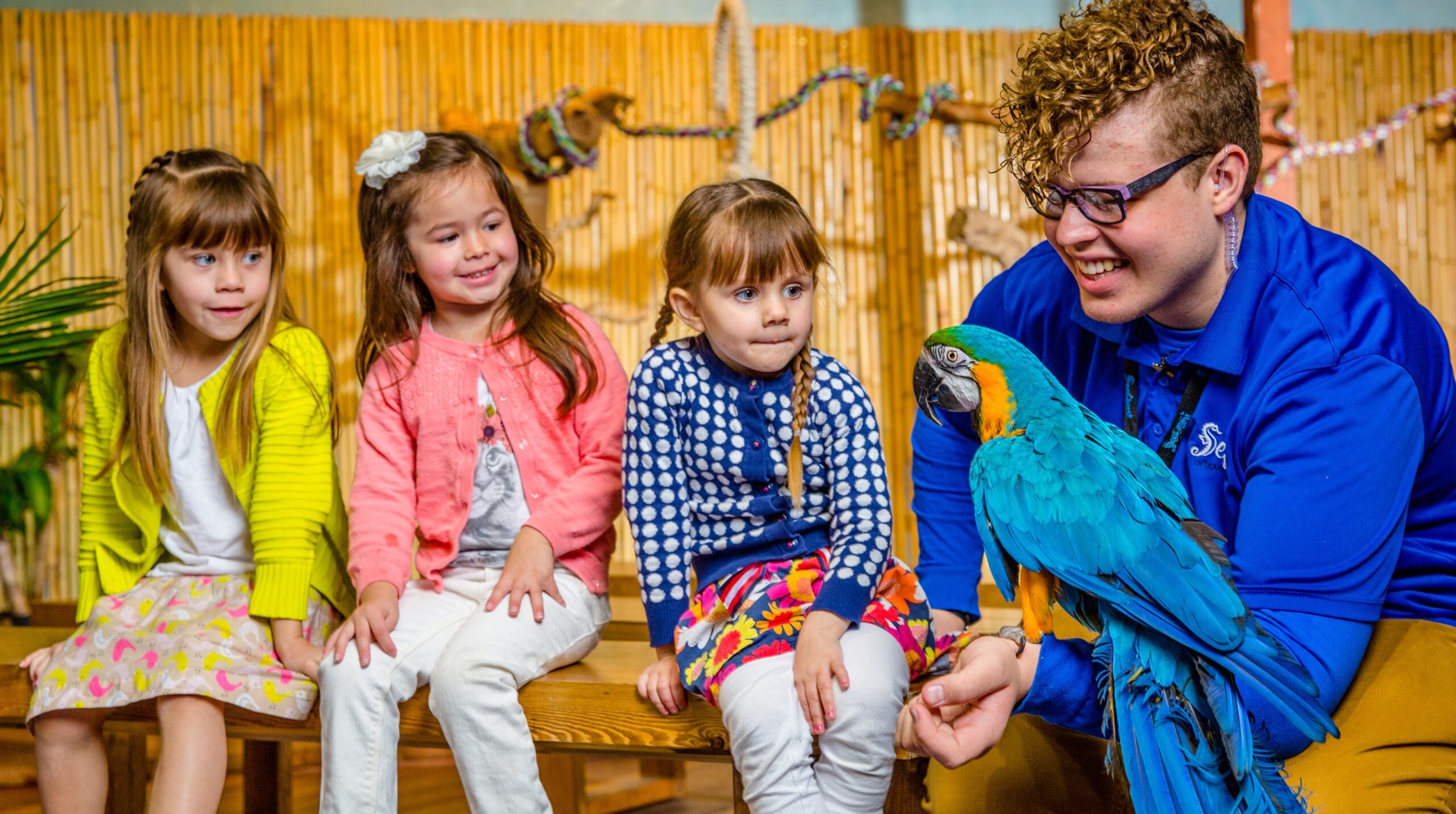
Since its inception in 2016, SeaQuest has firmly established itself as a pioneer in the intersection of animal conservation and interactive education. With a mission deeply rooted in raising awareness about critical conservation issues such as clean energy, protecting endangered species, opposing shark finning, and highlighting the dangers of overfishing, SeaQuest offers a hands-on approach that creates lasting impressions on visitors, instilling a deep sense of responsibility and care for the environment and its inhabitants.
SeaQuest works closely in local communities and supports wildlife conservation efforts through partnerships with notable non-profit organizations like Wednesday’s Child and the Make-A-Wish Foundation, as well as substantial contributions to local animal rescue and food shelters. Below is a highlight of SeaQuest’s significant contributions to conservation, rescue operations, and sustainable practices.
Supporting Conservation Efforts
At SeaQuest, we are deeply committed to supporting global conservation efforts. We leverage our unique position as an interactive aquarium and petting zoo to make a tangible impact on wildlife preservation. By engaging with global conservation projects, promoting biodiversity through education, and funding vital research, we are at the forefront of efforts to protect the planet’s precious ecosystems and the diverse species that inhabit them.
Engaging with Global Conservation Projects
At SeaQuest, we actively collaborate with international conservation organizations to support projects around the globe. These initiatives focus on clean energy, the protection of endangered species, the opposition to shark finning, and the combating of the dangers of overfishing. These initiatives are critical in preserving biodiversity and ensuring the survival of threatened species.
SeaQuest Book Drive for Education and Community Service
For example, our partnerships with organizations like the Make-A-Wish Foundation and local animal rescue facilities extend beyond financial contributions, involving active participation in rescue operations and rehabilitation programs. Through these collaborations, we help cultivate growing populations of endangered species, such as the axolotl, demonstrating the successful integration of conservation efforts with educational outreach.
Promoting Biodiversity Through Education
At the heart of our mission at SeaQuest is a strong emphasis on education designed to raise public awareness about the importance of biodiversity and conservation. Through interactive experiences that allow visitors to touch, feed, and interact with over 300 species of birds, reptiles, mammals, and marine animals, we provide an immersive learning environment unlike any other.
These memorable encounters are infused with educational content that highlights the ecological roles of different species, the threats they face, and the measures needed to protect them. By educating visitors on the critical issues of shark finning, climate change’s impact, and the consequences of overfishing, we aim to inspire a new generation of conservationists motivated to take action for the environment.
Funding Conservation Research
At SeaQuest, we are also an active funder of conservation research, supporting studies to protect ecosystems and understand their complex interdependencies. This research, often conducted in collaboration with academic institutions and specialized researchers, focuses on habitat restoration, species conservation, and the development of sustainable practices that benefit both wildlife and human communities.
For instance, our support for research on the effects of climate change on marine biodiversity provides essential data that can inform policy and conservation strategies. By financing these studies, we contribute to the global body of conservation knowledge and underscore science’s importance in informing effective environmental stewardship.
SeaQuest Team Members participate in Community Clean Up and Go Green Events
Rescue Efforts and Rehabilitation
At SeaQuest, our commitment to wildlife extends beyond education and conservation to include robust rescue operations and rehabilitation efforts for endangered species. Our process of rescuing these vulnerable creatures often begins with partnerships with local and international organizations, identifying species in distress, and taking immediate action to bring them into our care.
Rescue Operations for Endangered Species
Our comprehensive rescue operations focus on endangered species such as axolotls, baby otters, caimans, tortoises, reptiles, and exotic birds. These efforts often start with notifications from conservation groups or local wildlife authorities about distressed animals.
Upon arrival, each animal undergoes a health evaluation to address immediate needs, followed by a personalized rehabilitation plan. For instance, our breeding program for axolotls, aimed at conservation, has successfully bred over 1,000 individuals, contributing significantly to preserving their species.
A notable success story is Nana, an otter who was rehomed at SeaQuest Folsom and formed an unlikely but heartwarming bond. This adaptation highlights rescued animals’ resilience and social adaptability when given proper care and companionship.
Providing Sanctuary for Rescued Animals
Due to various factors, some rescued animals find a permanent home at SeaQuest. These animals receive care in facilities that mimic their natural habitats, providing a safe and enriching environment.
Each SeaQuest location, from Las Vegas to Littleton, offers unique enclosures tailored to the needs of its residents. Our care for these animals includes specialized diets, environmental enrichment, and regular health checks to ensure their well-being.
Echo, Xerxes, and Zoey, a trio of exotic birds, found sanctuary at our Utah location, benefiting from our aviaries that allow for natural behaviors and social interactions. Precious the Dwarf Caiman, rescued by Utah’s Department of Wildlife Resources, now thrives in our Amazon Rainforest enclosure, showcasing our ability to provide a lifeline for needy animals.
Rescue Parrots at SeaQuest
Working with Rescue Organizations
Collaboration with rescue organizations amplifies our rescue efforts, enabling us to participate in joint missions and benefit from shared expertise.
We’ve partnered with Ronie’s For the Love of Birds to rescue and rehabilitate avians, ensuring birds like Koka the Cockatoo, who came from a hoarding situation, receive the care they need. Our collaborations extend across all locations, from Las Vegas to Littleton, reflecting our commitment to animal welfare.
SeaQuest plays a vital role in the conservation and welfare of countless animals through our dedicated rescue operations, sanctuary provisions, and collaborative efforts with rescue organizations. Our success stories across various locations, from nurturing endangered axolotls to providing a new family for otters like Nana, underscore our commitment to positively impacting the lives of the animals in our care and educating the public on the importance of conservation.
Sustainable Practices and Clean Energy Initiatives
At SeaQuest, our commitment to conservation extends beyond animal care to include a steadfast dedication to sustainable practices and the adoption of clean energy initiatives. Our efforts are designed to minimize our environmental impact and educate our visitors on the importance of sustainability in protecting our planet’s ecosystems.
Implementing Clean Energy Solutions
In our pursuit of sustainability, adopting clean energy sources within SeaQuest facilities is a key focus. This involves integrating solar panels, using energy-efficient lighting and HVAC systems, and exploring innovative technologies that reduce our carbon footprint. Our facilities have state-of-the-art systems designed to conserve energy while maintaining optimal environments for the animals in our care.
Reducing Waste and Promoting Recycling
Minimizing waste production and promoting recycling are central to SeaQuest’s environmental stewardship. We have implemented comprehensive waste reduction measures across all our locations, from single-use plastic bans to the adoption of digital ticketing and information systems to reduce paper waste.
Our facilities actively engage in recycling programs, ensuring that materials such as paper, plastic, glass, and metal are properly sorted and recycled. We also use compostable materials in our cafés and gift shops, significantly reducing the volume of waste sent to landfills. In addition, our animal care practices are designed to minimize waste, including using biodegradable cleaning products and recycling water in our aquatic exhibits through advanced filtration systems.
The cumulative impact of these efforts is substantial. They lead to a significant reduction in waste production and contribute to the health of our local ecosystems. By prioritizing recycling and waste reduction, SeaQuest lessens its environmental footprint and is a model for sustainable practices within the zoological community.
Advocacy Against Harmful Practices
At SeaQuest, our commitment to the environment and marine life extends beyond the walls of our interactive petting zoo aquariums. We actively advocate against practices that threaten the health and diversity of marine ecosystems, particularly shark finning and overfishing. These harmful practices disrupt the balance of marine life and pose significant threats to the survival of numerous species.
Opposing Shark Finning
Shark finning, a brutal practice resulting in the death of millions of sharks annually, is unequivocally opposed by SeaQuest. We are deeply concerned about the impact of shark finning on shark populations and the overall health of the ocean’s ecosystems. Shark finning involves the removal of fins from sharks, often while they are still alive, and discarding the rest of the animal back into the ocean, leading to a wasteful and inhumane death.
To combat this practice, SeaQuest has launched several educational campaigns to raise awareness about the devastating impact of shark finning on marine biodiversity. Through interactive exhibits and educational materials, visitors learn about sharks’ critical role in marine ecosystems and the dire consequences of their diminishing populations. Our exhibits include information on the estimated 75,000,000 sharks killed annually for their fins, providing a stark visual and emotional understanding of the scale of this issue.
Combating Overfishing
Overfishing is another critical issue that SeaQuest actively addresses. The unsustainable harvesting of fish species at rates faster than they can reproduce threatens the balance of marine life, leading to the depletion of essential fish populations and the destruction of marine habitats.
SeaQuest’s efforts to raise overfishing awareness include educational programs informing visitors about the importance of sustainable fishing practices. By highlighting the dangers of overfishing, such as the potential extinction of critical species and the impact on communities that rely on fishing for their livelihoods, we aim to inspire change in how individuals and industries approach fish consumption.
In addition, SeaQuest promotes sustainable fishing practices through partnerships with organizations dedicated to fighting overfishing. These collaborations focus on supporting and implementing fishing regulations, marine protected areas, and sustainable seafood initiatives. We strive to ensure marine ecosystems’ long-term health and diversity by working together.
Partnerships and Community Engagement
SeaQuest’s mission extends into the heart of the communities we serve, underpinned by solid partnerships with conservation organizations and a commitment to engaging the community in conservation efforts. Through collaboration and education, we strive to foster a culture of environmental stewardship and active participation in conservation initiatives.
Collaborating with Conservation Organizations
SeaQuest partners with various conservation organizations, including St. Jude’s Children’s Ranch, Children’s Miracle Network, Make-A-Wish Foundation, and various local animal rescue facilities and food shelters. These partnerships are crucial in supporting our primary conservation issues: clean energy, protecting endangered species, opposing shark finning, and combating the dangers of overfishing.
The nature of these partnerships varies, encompassing financial contributions, in-kind donations, and active participation in conservation projects. For example, our collaboration with the Make-A-Wish Foundation often involves hosting special events at our facilities, providing unforgettable experiences for children while raising awareness about the importance of marine conservation. Similarly, working with animal rescue organizations allows us to support local wildlife through rescue operations, rehabilitation programs, and educational outreach.
Community events and programs from these partnerships are designed to educate and inspire action. From beach clean-ups to conservation workshops, these events provide hands-on learning opportunities that underscore the importance of protecting our natural world. For instance, our annual Ocean Day Celebration invites families to learn about sustainable practices through interactive exhibits and activities, fostering a sense of community and shared environmental responsibility.
Engaging the Community in Conservation Efforts
SeaQuest actively involves the community in its conservation efforts through various initiatives designed to educate, engage, and empower individuals of all ages. Our approach includes volunteer opportunities, educational programs, and community-based conservation projects.
Community programs, such as school outreach and citizen science projects, extend our conservation message beyond our facilities. By partnering with local schools, we offer educational programs that align with curriculum standards and focus on conservation themes. On the other hand, citizen science projects engage the community in data collection and research initiatives, contributing valuable information to conservation studies and fostering a sense of ownership and participation in scientific discovery.
The impact of community engagement on broader conservation goals is profound. By involving the community in our conservation efforts, we amplify our impact and cultivate a generation of informed, motivated individuals committed to protecting our planet. This collective action approach reinforces the idea that everyone has a role in conservation, encouraging sustainable practices and advocacy for environmental protection in daily life.
SeaQuest is committed to protecting our world’s oceans and endangered animals. We focus on how to be proactive in finding solutions. To learn more about how you can help SeaQuest with this cause, book your visit today at any of the following locations: Utah, Las Vegas, Dallas-Fort Worth, Sacramento, Minneapolis, Lynchburg, and New Jersey.

